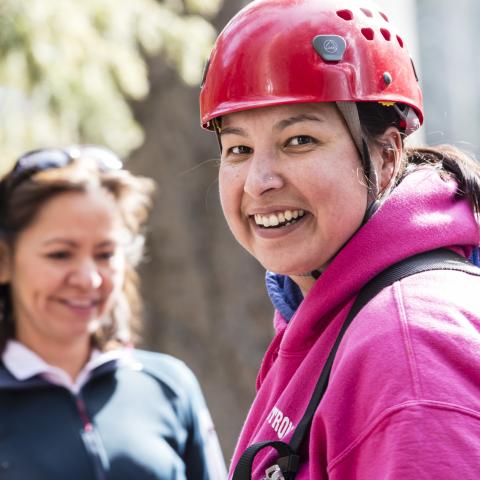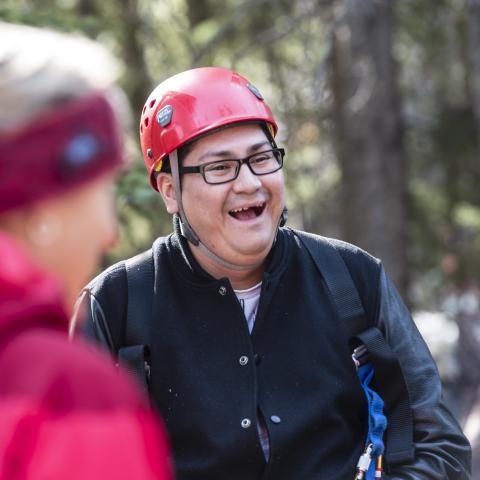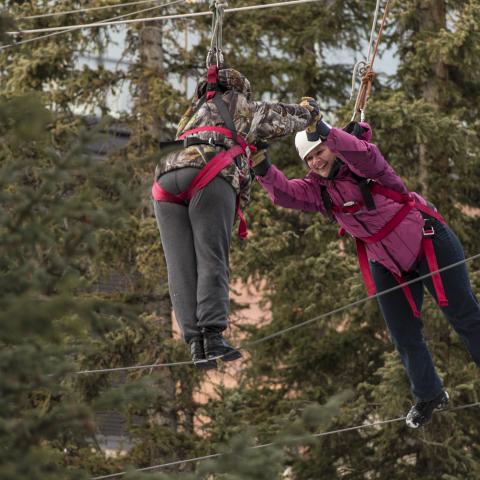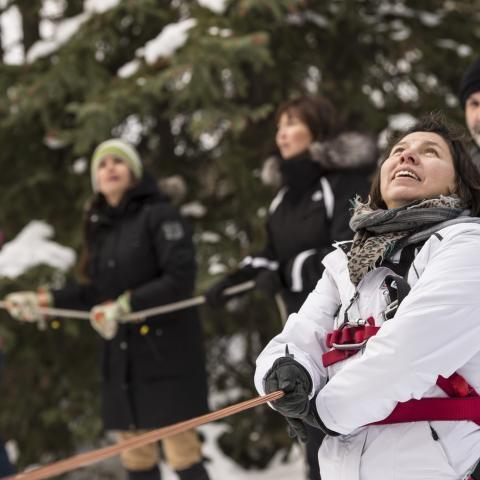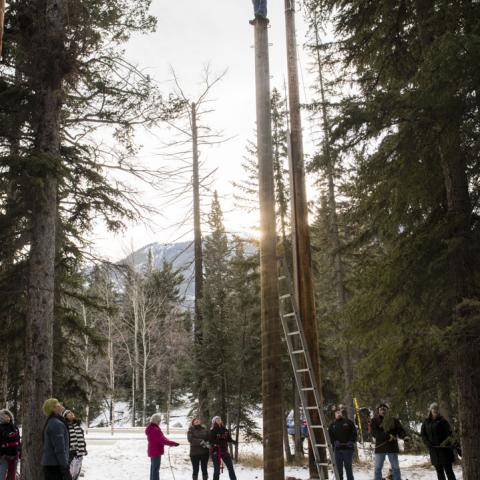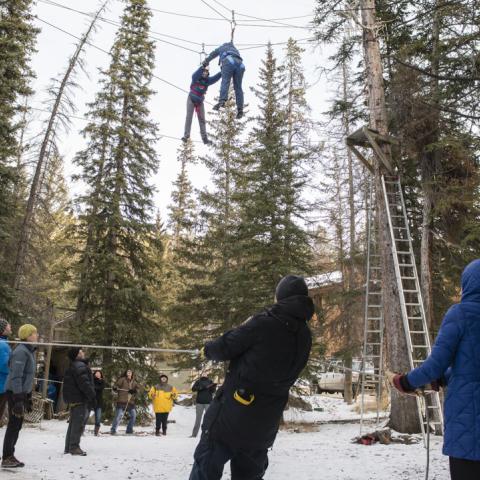Inspired by Altitude: Recipients Gain New Insights
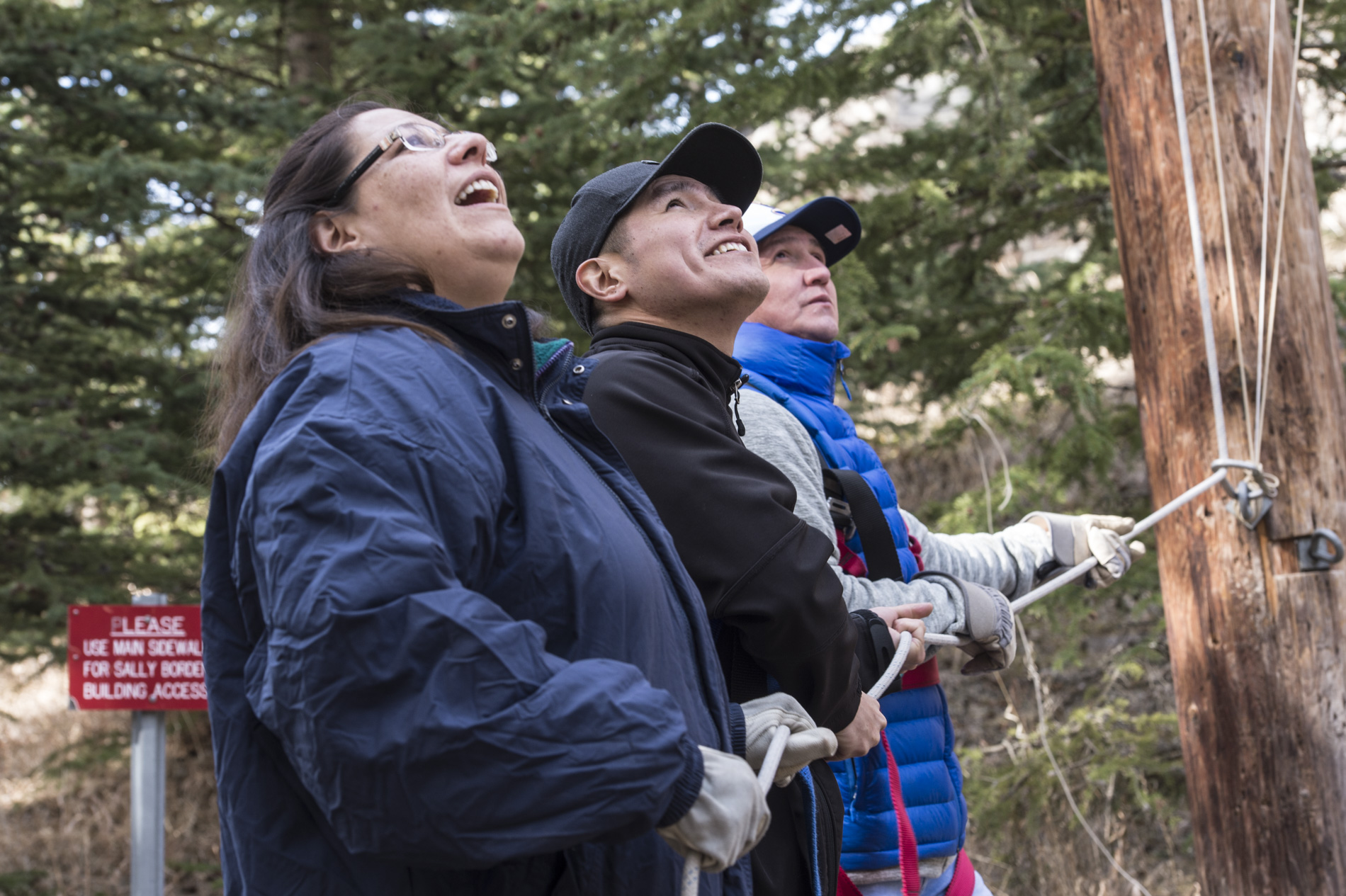
For Harvey McLeod, Frank Alec, and Zelda Quewezance, participating in Indigenous leadership programs at The Banff Centre saw them scale new heights and jump into new territory – both mentally and physically. All three recently received their Indigenous Leadership, Governance, and Management Excellence Certificate for successfully completing six programs.
“I was scared of heights and remember standing on top of the pole,” said McLeod, recalling the ‘Leap of Faith’ exercise that was part of an outdoor ropes course during one of the programs. The activity required participants to climb and jump off a 25-foot pole while safely secured by ropes held by fellow participants.
McLeod, executive director of Interior Salish Employment and Training, said to jump he had to let go of his fear – and he gained a valuable insight in return. “Faith in people holding the rope was a major lesson for me, having trust in other people,” said Mcleod. “That week inspired me to do other things, to take on new challenges.”
Alec, general manager of the Lake Babine First Nation in B.C., related his learnings about trust to his workplace and community. “What I found interesting is that the experience of being 25 feet in the air showed me how to trust other people, and what’s needed to achieve a goal -– in business, in negotiations, and in meetings.”
“It doesn’t matter who the people are or which organization we are from,” he continued. “Follow the process and you’ll do fine.”
Quewezance, executive director of the Saulteaux Healing and Wellness Centre in Kamsack, Saskatchewan, said the pole jump experience taught her that fear controlled her. “It’s only me stopping myself,” she realized. “I gained a lot of confidence.”
The ropes course was one of many activities – indoors and out – that served as a learning springboard for these participants. “I couldn’t wait to get to work, to share what I learned here,” McLeod added. Whether it be creating a strategic plan or leading his band and board of directors through their annual Council assembly. Learning more about leadership principles has made his job easier.
McLeod said connecting with fellow participants was another benefit.
“Outside learning is so important. It validated a lot of the issues we face back home, and opened the opportunity for us to go back and organize ourselves, to ensure we are getting the most for ourselves.”
“It showed me how to work with leaders and treat them well, to give them all the information they need to have,” said Alec. His working vision now is to have band council members involved in issues and processes, from succession planning to crisis management, and to reactivate Indigenous tradition and culture in the younger generation.
“It’s hard work, it’s mentally challenging work,” said Quewezance of the programs. Spurred on by the program work she is now focusing on economic development opportunities on her reserve, networking, and securing corporate sponsorships. “We have to keep evolving.”
“Learning is lifelong,” pointed out McLeod. “It comes in many different forms, from faculty, from people attending, from the environment.”
The inspiration and spiritual setting at Sleeping Buffalo mountain is acknowledged by Alec. "A spirit still roams in the area. I could feel the history here, how many nations went through here. A good spirit stays around, and when I need to fall back on the teachings all I have to do is go back in my mind and I hold that in my heart.”
